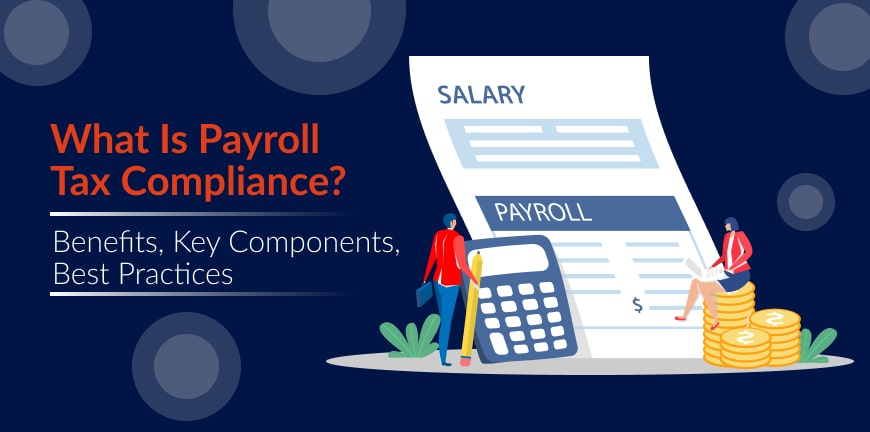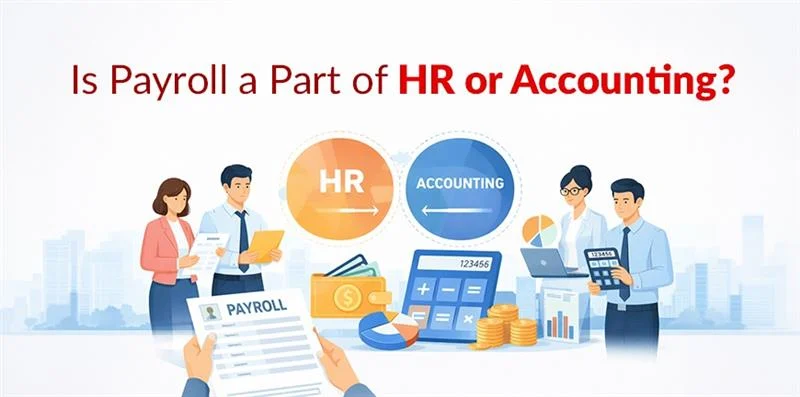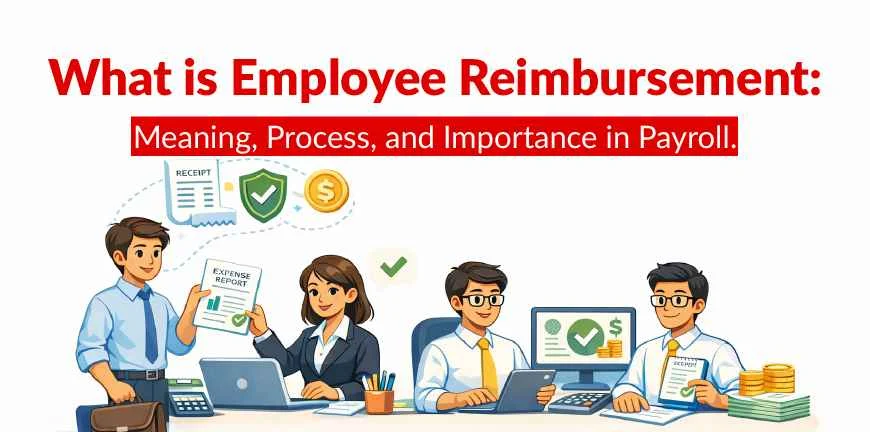
What are Employee and Employer Payroll Taxes?
21/04/2025
What is Mobile Workforce Management? Benefits & Trends in 2026
22/04/2025- What Is Payroll Tax Compliance? Meaning & Definition
- How Does Payroll Tax Compliance Work?
- What Are the Benefits of Payroll Tax Compliance?
- What Are the Key Components of Payroll Tax Compliance?
- What Are the Common Issues in Payroll Tax Compliance?
- What Are the Current Trends in Payroll Tax Compliance?
- What Are the Best Practices for Payroll Tax Compliance Management?
- Are you looking for Payroll Partner?
- Frequently Asked Questions
- 1. What is payroll tax compliance?
Whether you are running a small enterprise or a big tech company, payroll tax compliance must be achieved to run operations smoothly and avoid legal hassles. However, achieving payroll tax compliance is not that straightforward as it involves navigating through complex income tax law frameworks and vulnerable payroll management systems prone to errors.
Having complete knowledge of payroll tax compliance will give companies an edge on how to proceed further to achieve better outcomes. Let’s discuss payroll tax compliance meaning, procedures, benefits, common issues, trends, and best practices so that companies can use the information diligently and achieve 100% payroll tax compliance.
What Is Payroll Tax Compliance? Meaning & Definition
Payroll tax compliance meaning states that ” Any company whether a startup or a market leader must ensure that payroll tax processes and procedures are legally compliant with the Indian tax laws and regulations. Any violations or breaches may lead to penalties and legal hassles which can create a financial burden and loss of brand image for the company.
The importance of payroll tax compliance is not only to meet legal requirements but also to create trust among employees and stakeholders that the organisation is committed to building a safe and transparent work culture.
How Does Payroll Tax Compliance Work?
Payroll tax compliance has a direct impact on a company’s financial well-being and enhances the brand reputation. The consequences of non-compliance far exceed the cost of implementing a well-organised tax compliance management.
A payroll tax compliance checklist must be followed diligently to identify gaps in payroll taxation processes and procedures and create mitigation strategies to ensure 100% payroll tax compliance is achieved.
Typically, a payroll tax compliance audit must be done to review and fix payroll tax compliance issues. It can be done internally by forming an internal tax compliance team, but it is always smarter to partner with an expert payroll tax compliance agency such as ALP Consulting for the best outcomes.
The steps involved in payroll tax compliance include:
1. Detailed review of payroll records
The compliance team must verify and validate employee payroll data such as names, bank account numbers, PAN details, employment status, salary received before and after appraisal, designations, etc. This will help in ensuring the right tax deductions are performed according to payroll tax regulations.
2. Tax Deductions and Remittances
The payroll compliance team must calculate and deduct TDS (Tax Deducted at Source and remit Professional Tax (PT) to the tax authorities according to the current tax slabs. Additionally, Employee Provident Fund (EPF), Employees’ State Insurance (ESI) remittance, and other statutory contributions must be carried out in a timely manner to ensure compliance.
3. Reconcile Payroll Reports
We must reconcile the payroll reports for the financial year with the actual payments done. This process involves checking and verifying gaps between the payroll registers, bank statements, and accounting records. Reconciliation helps in identifying and mitigating errors before filing tax returns.
4. Form Generation and Filing
The compliance team must prepare annular tax file returns such as TDS, PF (Forms 5, 10, 12A, and 3A), (Form 24Q), ESI, and Professional Tax. We must ensure the deadlines are met otherwise there will be payroll tax compliance issues leading to penalties and lawsuits.
5. Record Keeping
The compliance team must ensure that accurate payslips with deductions payments are provided to all employees. These records must be maintained and submitted as supporting documents for creating reports for accounting and finance management. A secure system must be deployed to store the documents both in physical as well as electronic form.
6. Compliance Audits
Conduct periodic internal and external audits to ensure payroll tax compliance issues are fixed and corrective measures are initiated before the final audit by government auditors. We must ensure all the payroll compliance procedures are aligned with the payroll tax regulations and no errors are being overlooked.
The final tax compliance audit reports must be generated consisting of the findings and recommendations and the same must be shared with the internal stakeholders. A follow-up must also be performed to ensure mitigating measures are implemented and 100% payroll tax compliance is achieved.
What Are the Benefits of Payroll Tax Compliance?
The key benefits of payroll tax compliance include:
- It helps companies prevent penalties and lawsuits.
- Employee trust and morale will be enhanced.
- It ensures financial accuracy helping companies make informed decisions on expansion and future investments.
- It increases the brand image and reputation of the companies.
- It reduces the risks of frequent audits from tax authorities.
- Businesses can concentrate more on their core activities without worrying about payroll tax compliance.
What Are the Key Components of Payroll Tax Compliance?
The key components of payroll tax compliance include:
- Accurate calculations of wages, tax withholdings, and other statutory deductions. It includes gross salaries, bonuses, reimbursements, health insurance, TDS, EPF, ESI, professional tax, and other applicable deductions.
- Ensure statutory compliances are met concerning EPF, ESI, professional tax, etc.
- Payroll tax compliance report generation and filing must be done promptly to prevent the consequences of non-compliance.
- Ensure payroll tax compliance processes and procedures are in line with payroll tax regulations.
What Are the Common Issues in Payroll Tax Compliance?
The common payroll tax compliance issues include:
- Misclassification of employees: Any misclassification of employees like being labelled as independent contractors or consultants can lead to serious compliance issues and legal risks.
- Inaccurate payroll records: Robust payroll record keeping is mandatory to ensure payroll tax compliance. Payroll records with errors or incomplete information are a direct violation of payroll tax regulations leading to legal cases and hefty penalties.
- Non-compliance with payroll tax regulations: Many businesses are oblivious to the latest payroll tax regulations and amendments and end up making compliance errors which can be detrimental to the company’s compliance goals and future business growth.
- Ignoring overtime pay: Businesses frequently mishandle overtime pay which can lead to serious consequences of non-compliance. This oversight may lead to litigations and penalties which can tarnish the brand image of the company for a long time.
What Are the Current Trends in Payroll Tax Compliance?
The current trends affecting payroll tax compliance include:
- AI and robotic process automation (RPA) adoption is a major payroll trend in 2025. An automated payroll process will reduce human errors increasing efficiency and ensuring payroll tax compliance.
- Employee self-service portals are being adopted to provide a seamless experience for employees where they can access salary slips, employment data, and tax documents. This will also reduce the workload of the HR teams.
- With tax regulations and compliance requirements subjected to frequent changes and amendments, companies are working towards implementing payroll management systems that offer real-time payroll compliance updates.
What Are the Best Practices for Payroll Tax Compliance Management?
Here are the 10 best practices for payroll tax compliance:
- Always maintain accurate payroll records of employees.
- Accurate employee classification is essential for payroll tax compliance.
- Stay Updated with the latest Indian Labor Laws and payroll tax Regulations.
- Automate payroll processing to reduce payroll errors.
- Implement a payroll calendar to ensure all tax-related payments and form submissions are done on time.
- Ensure proper and accurate tax withholdings
- Use direct deposit method for employee payment for better compliance.
- Ensure payroll data is safe and secure through robust cybersecurity measures.
- Reconcile Payroll Accounts Regularly
- Conduct periodic payroll tax compliance audits with the help of top complaint audit agencies like ALP Consulting for accurate outcomes.
Are you looking for Payroll Partner?
Achieving payroll tax compliance can be challenging as well as time-consuming through an in-house team since they must juggle between their regular tasks and compliance activities. This can lead to payroll errors and can delays in tax filing and reporting leading to serious payroll tax compliance issues. Hence, a smarter and more effective way to manage payroll tax compliance is by partnering with a top payroll tax compliance agency that offers end-to-end services.
Through this arrangement, companies can enjoy numerous benefits such as guaranteed payroll tax compliance, expert guidance, undisrupted services, focus on other core activities, staying up to date with changing payroll tax regulations, and many more. If you are looking for a trusted payroll compliance partner in India, then ALP Consulting is the best choice.
Frequently Asked Questions
1. What is payroll tax compliance?
The payroll tax compliance definition states that ” all companies whether a startup or a Fortune 500 must adhere to payroll tax regulations and laws prescribed by government authorities to stay compliant, and any violations can lead to penalties, legal cases, and in extreme cases closure of business”.
2. Why is payroll tax compliance important?
The importance of payroll tax compliance can be demonstrated by the fact that if a company commits payroll errors and it comes to the notice of tax authorities, then that company must face serious consequences of non-compliance like penalties, hefty penalties, licence cancellation, and in some cases closure of business.
3. Can payroll tax compliance be automated?
Yes, most steps in the payroll tax compliance process can be automated through payroll software and other sophisticated AI-powered integration tools.
4. What taxes are included in payroll tax compliance?
The different taxes involved in payroll tax compliance include income tax (TDS), Employee’s state insurance (ESI), Employee’s provident fund (EPF, Professional tax, etc.
5. How do companies manage payroll tax compliance efficiently?
Companies can manage payroll tax compliance efficiently by following the best practices for payroll tax compliance such as ensuring accurate payroll records, conducting periodic compliance audits, staying up to date with the latest payroll tax regulations, mitigating potential risks, implementing automated payroll management systems, etc.
6. Is payroll tax the same as income tax?
A major difference between payroll tax and income tax is that payroll tax compliance is dependent on both employees and employer whereas income tax is the sole responsibility of the employer or individuals earning income from performing a business transaction.
7. Can small businesses handle payroll tax compliance in-house?
Yes, small businesses can handle payroll tax compliance in-house, but the only catch here is in-depth knowledge and expertise in payroll tax regulations and laws. However, partnering with an expert payroll compliance agency like ALP Consulting is a better option since they offer end-to-end compliance services that ensure accuracy and 100% compliance in a timely manner.
Contact Us For Business Enquiry

Yugandhara V. M
Yugandhara V. M serves as the Assistant Vice President – HRO at Alp Consulting Ltd., bringing over 14 years of rich experience in Human Resource Outsourcing, payroll management, and statutory compliance. He specializes in driving process excellence across HR operations, ensuring seamless service delivery and compliance with labor laws. Yugandhara’s expertise lies in managing large-scale client engagements, optimizing HR processes, and implementing efficient workforce management systems that enhance organizational performance. He also leads comprehensive payroll services, ensuring accuracy, timeliness, and compliance for diverse client portfolios.




